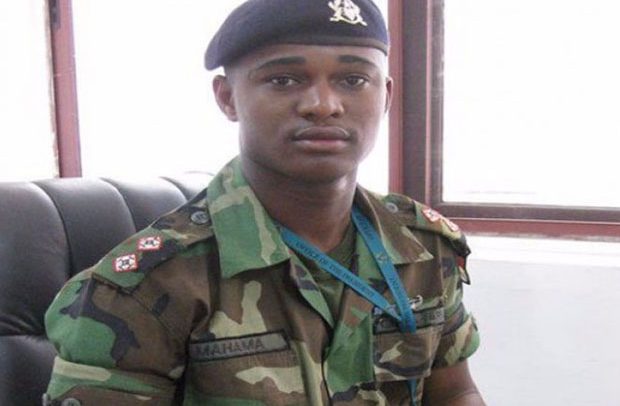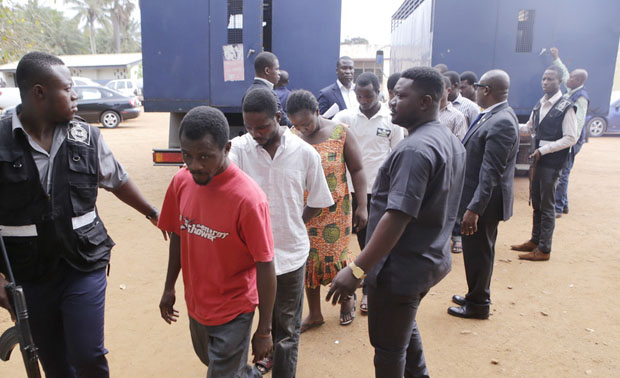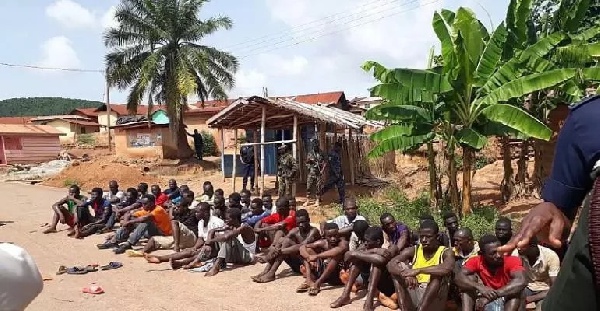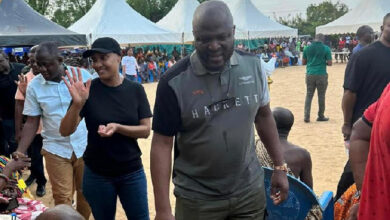13 alleged killers of Major Maxwell Mahama finally speaks the truth; Read what they told the court

Prosecutors have told the jury that 13 of the 14 defendants in the case who are accused of conspiring to lynch young soldier Maxwell Mahama were ” amazed” he survived their attack for so long.
All 13 are charged with conspiracy except for William Baah, the Assemblyman for Denkyira Obuasi, who is accused of abetment.
Monday, October 23, on the second day of the prosecution’s closing argument to the jury, Chief State Attorney Mrs Evelyn Keelson argued that defendants A2 through A14 ” all acted with a common purpose to kill the deceased. ”
Mrs. Keelson informed the jury that the prosecution’s witnesses proved that the defendants committed the crime as a team.
She told the court that after Major Mahama was shot at and hit with cement blocks multiple times, ” they were amazed” that he was still alive.
As the Chief State’s Attorney put it, ” They (accused) thought (wondered that) he had a charm” because they shot at him, hit him with stones, sticks, and cement blocks, and he was still alive.
The accused pounced on him with a wide variety of weapons before opening fire. They were perplexed by his apparent inability to perish for what seemed like an eternity.
They all agreed that he had a certain charisma. Mrs. Keelson told the Jury that the couple was shocked to learn that he was still alive after everything they had done for him.
William Baah, alias Misty, a former Assemblyman for Denkyira Obuasi, is on trial for Abetment. The Chief State Attorney had previously briefed the jury on the role performed by Baah.
Murtala Inusah, the legal affairs correspondent for the EIB Network, was present in court and wrote that the prosecution has so far addressed the jury on the counts of abetment and conspiracy and that on October 30 they will conclude with the charge of murder.
Justice Mariama Owusu, a Justice of the Supreme Court sitting with added responsibilities as a High Court judge, presided over the Court after the State presented its final 14 witnesses.
Three of the fourteen defendants, in this case, have chosen not to provide a defense: Kofi Nyame (the third accused), Bismark Abanga (the thirteenth accused), and Kwadwo Anima (the fourteenth accused).
On Monday, June 5, 2023, the attorneys for the 13th and 14th accused, led by Lawyer Patrick Anim Addo, admitted they had no proof and dropped the case.

Accused Persons
Assemblymember William Baah of Denkyira-Obuasi, Bernard Asamoah alias Daddy, Kofi Nyame aka Abortion, Charles Kwaning aka Akwasi Boah, Kwame Tuffour, Joseph Appiah Kubi, Michael Anim, and Bismarck Donkor are among the accused.
Kwadwo Anima, Akwasi Asante, Charles Kwaning, Emmanuel Badu, Bismarck Abanga, and John Bosie are the others.
Assemblyman William Baah has pled not guilty to abetment, and the remaining 13 have all denied the allegations of murder, conspiracy to murder, and accessory after the fact.

Brief Facts
According to the prosecution’s case, Major Mahama was in charge of a military unit stationed in the Central Region’s Upper Denkyira West District town of Diaso to crack down on illegal mining.
On the morning of May 29th, 2017, at 8 a. m. , Major Mahama, dressed in civilian clothing but carrying his sidearm, set out on a 20- kilometer jog from his detachment base.
At 9: 25 a. m. the military officer arrived on the outskirts of Denkyira Obuasi, where several ladies were setting up shop along the road to sell various types of food.
Before continuing his exercise, he paused to chat with the women and, after making a purchase, he left the snails in their care.
The woman from whom he bought the snails, as well as a few others, observed his sidearm tucked to his waist as he took money out of his pocket to pay for the snails.
Shortly after he left, one of the women called the assembly member for Denkyira Obuasi to tell her what she and the other women had observed.
The prosecution argued that the assembly member ” without verifying the information” had rallied the accused and others, some of whom are still at large, to attack the military commander.
According to the report, a mob confronted Major Mahama outside the Denkyira Obuasi cemetery and ” attacked him with implements such as clubs, cement blocks, and machetes, killed him, and burned a portion of his body. ” He was not given the chance to identify himself or explain the situation.




